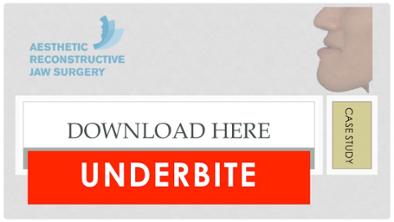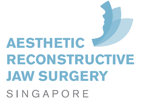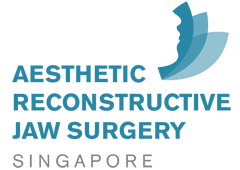Share this
Braces vs. Jaw Surgery for Underbite in Singapore
on July 15, 2014

Underbite is a condition in which the teeth do not align properly, with the bottom teeth overlapping the top ones when the mouth is closed. This condition can be caused by irregularities in the positioning of the teeth, which is called a dental underbite, or by jaws that are misaligned, called a skeletal underbite. Braces and jaw surgery are both commonly used to treat underbite in Singapore. Which of the two is best in each case depends largely on the underlying cause of a patient's underbite.
Why Underbite Needs Treatment
While underbite can be the source of cosmetic problems that take a toll on a person's self-esteem and quality of life, such as a protruding or elongated lower jaw, an inability to close the mouth naturally and a tendency to spray saliva while speaking, among others, it is not, by any means, just an aesthetic issue. Underbite can cause a number of serious functional and dental problems as well.
Underbite can make it difficult to bite and chew foods efficiently, affecting digestion and nutrition, which can, in turn affect a person's overall health. It can also cause breathing problems, lead to chronic jaw pain and interfere with speech clarity, causing a person to lisp or struggle to pronounce certain sounds. Over the long term, underbite can lead to tooth loss and gum disease, as uneven tooth wear increases risk of tooth decay and infection.
Braces For Underbite
Braces and other forms of orthodontic treatment can address underbite that is caused by poor positioning of teeth. Orthodontists can also, when intervention occurs early in life, guide jaw growth in children who show a tendency towards developing skeletal underbite, treatment that can often prevent the need for corrective jaw surgery later in life. For this reason, Singapore parents are advised to have their children evaluated by an orthodontist by the age of 7 to ensure that developing problems are diagnosed and treated as early as possible.
Jaw Surgery for Underbite
When early intervention does not occur or attempts at preventing the development of skeletal underbite are not successful, corrective jaw surgery – also called orthognathic surgery – is generally the only effective means of correcting the problem. At this point, braces may camouflage an underbite to some extent if it is a mild one, but will not resolve the underlying issue of poor jaw alignment or the long-term problems it can cause.
Jaw surgery for underbite involves a combination of orthodontic and surgical treatments to resolve functional and aesthetic issues. Through close collaboration between a patient's Singapore oral and maxillofacial surgeon and orthodontist, a treatment plan will be formulated that includes orthodontic care – generally braces – to prepare for jaw surgery by moving teeth into a position suitable for well-aligned jaws. Then, jaw surgery is performed, during which the surgeon will resize, reshape or reposition one jaw or both as necessary to correct the patient's bite. Typically, after about 8 weeks of healing, another round of orthodontic care will be administered to fine-tune the bite after surgery.
So the bottom line is that dental underbite – caused by poor tooth alignment – can be helped by braces, offering patients better oral function and a more attractive smile. However, braces alone cannot yield those results when the problem is caused by jaw irregularities. In these cases, the underlying problem will need to be addressed by a Singapore oral and maxillofacial surgeon via jaw surgery for underbite.
Share this
- Jaw Surgery (93)
- Dental Implants Singapore (90)
- Orthognathic Surgery (48)
- Replacing Missing Teeth (26)
- Missing Teeth Options (23)
- Underbite (23)
- Bone Grafting (21)
- Costs (18)
- Facial Aesthetics (18)
- Aesthetics (17)
- dental implants (16)
- corrective jaw surgery (15)
- BOTOX (11)
- Dermal Fillers (11)
- Wisdom teeth (10)
- Fixed Implant Dentures (8)
- Loose Dentures Singapore (6)
- Medisave (6)
- sleep apnea (6)
- Braces (5)
- Dental Pain (5)
- Dentures in Singapore (5)
- Loose Teeth (5)
- Tooth Extraction (5)
- jaw deformities (5)
- bimax (4)
- bone graft (4)
- maxillomandibular advancement (4)
- all-on-4 (3)
- bimaxillary protrusion (3)
- chin implant (3)
- facial asymmetry (3)
- full mouth dental implants (3)
- genioplasty (3)
- immediate implant (3)
- removal of an integrated dental implant (3)
- third molars (3)
- wisdom tooth surgery (3)
- My Dentures Don't Fit (2)
- VME (2)
- bone graft healing (2)
- distraction osteogenesis (2)
- medical tourism (2)
- obstructive sleep apnea (2)
- orthodontics (2)
- plastic surgery (2)
- CT guided dental implants (1)
- Double jaw surgery (1)
- Invisalign (1)
- Periodontal Disease (1)
- Permanent Dentures Singapore (1)
- before and after photos (1)
- facial trauma (1)
- fractured dental implant (1)
- oral appliance therapy (1)
- root canal treatment (1)
- veneers (1)
- vertical maxillary excess (1)
- September 2019 (2)
- July 2019 (2)
- May 2019 (2)
- August 2018 (1)
- October 2017 (1)
- September 2017 (2)
- August 2017 (1)
- June 2017 (2)
- May 2017 (4)
- April 2017 (1)
- March 2017 (1)
- February 2017 (3)
- January 2017 (3)
- December 2016 (1)
- November 2016 (2)
- October 2016 (4)
- September 2016 (9)
- August 2016 (5)
- July 2016 (11)
- June 2016 (14)
- May 2016 (6)
- April 2016 (2)
- March 2016 (1)
- January 2016 (7)
- December 2015 (10)
- November 2015 (4)
- October 2015 (9)
- September 2015 (7)
- August 2015 (1)
- July 2015 (6)
- June 2015 (3)
- May 2015 (7)
- April 2015 (5)
- March 2015 (8)
- January 2015 (5)
- December 2014 (7)
- November 2014 (7)
- October 2014 (6)
- September 2014 (8)
- August 2014 (5)
- July 2014 (7)
- June 2014 (8)
- May 2014 (9)
- April 2014 (10)
- March 2014 (6)
- February 2014 (8)
- January 2014 (3)
Subscribe by email
Email subscription




Comments (6)